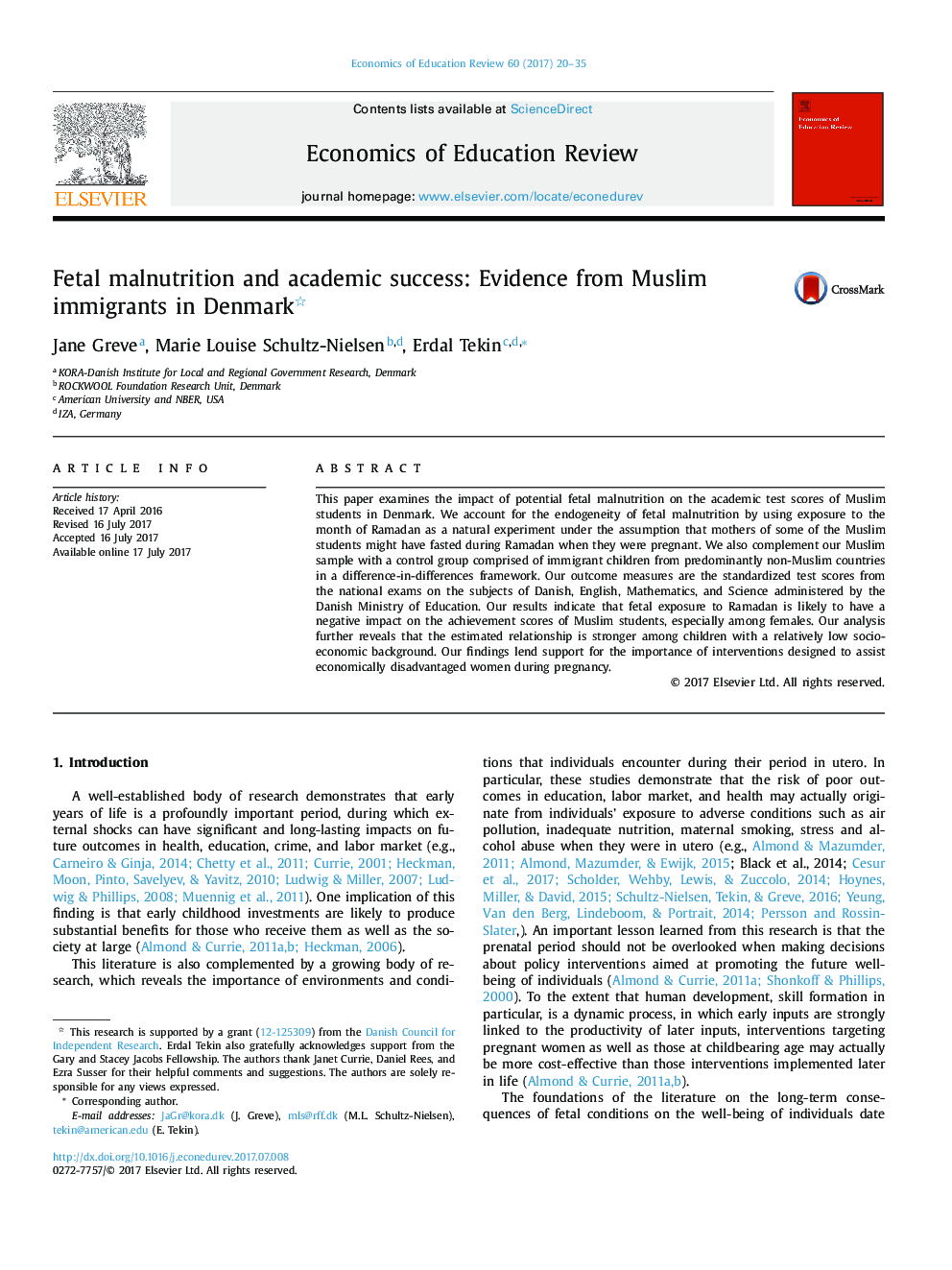| Article ID | Journal | Published Year | Pages | File Type |
|---|---|---|---|---|
| 4938265 | Economics of Education Review | 2017 | 16 Pages |
Abstract
This paper examines the impact of potential fetal malnutrition on the academic test scores of Muslim students in Denmark. We account for the endogeneity of fetal malnutrition by using exposure to the month of Ramadan as a natural experiment under the assumption that mothers of some of the Muslim students might have fasted during Ramadan when they were pregnant. We also complement our Muslim sample with a control group comprised of immigrant children from predominantly non-Muslim countries in a difference-in-differences framework. Our outcome measures are the standardized test scores from the national exams on the subjects of Danish, English, Mathematics, and Science administered by the Danish Ministry of Education. Our results indicate that fetal exposure to Ramadan is likely to have a negative impact on the achievement scores of Muslim students, especially among females. Our analysis further reveals that the estimated relationship is stronger among children with a relatively low socio-economic background. Our findings lend support for the importance of interventions designed to assist economically disadvantaged women during pregnancy.
Related Topics
Social Sciences and Humanities
Economics, Econometrics and Finance
Economics and Econometrics
Authors
Jane Greve, Marie Louise Schultz-Nielsen, Erdal Tekin,
